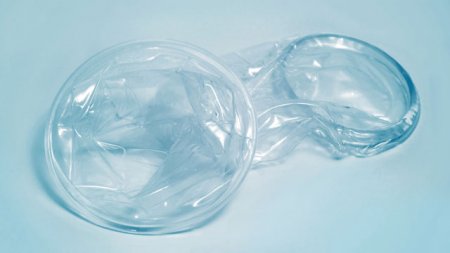L
LequteMan
Guest
Stakeholders in the health sector in a joint statement issued by Mrs Esther Agbarakwe and Mrs Nwabundo Onyeabo on behalf of the organisers of the 2014 Global Female Condom Day in Abuja on Tuesday stressed the importance of increasing public awareness on the use of female condoms in Nigeria and sub-Saharan Africa.
``In 2009, around 26 million female condoms were provided through international and non-governmental funding sources, compared to 10.7 million in 2006.
``However, the global distribution of female condoms is still far less than that of male condoms as it is currently not a well-known product, with only 13 per cent of persons having heard of the female condom, and much fewer have ever used one,’’ the statement said.
It said that though the campaign for female condom use in Nigeria had been in the media for some time, stakeholders in the sector had identified strategies that could improve condom use among women.
According to the statement, the Society for Family Health (SFH) currently creates demand through innovative mass media campaigns and advocacy to key community and opinion leaders, and distributes female condoms nationwide.
It said that the government in collaboration with stakeholders had in the past promoted the distribution of over three million female condoms as part of its campaign against the spread of Sexually Transmitted Diseases (STDs).
``The effectiveness of the female condom cannot be over emphasised as when used perfectly, its failure rate is below 5 per cent and it can be inserted up to five hours before sex.
``The principle behind its operation is basically the same as the male version: it provides a barrier to the exchange of bodily fluids during sexual intercourse that can lead to HIV transmission.
``Strong grassroots intervention, interpersonal communication and elimination of inhibiting cultural and social beliefs are keys to promoting increased female condom use in Nigeria,’’ it said.
The statement said that the country programme activities for Global Female Condom Day will hold from 13 to 16 Oct. and would include providing support for large scale female condom programming in Nigeria.
#Nigeria #Condom #Abuja

``In 2009, around 26 million female condoms were provided through international and non-governmental funding sources, compared to 10.7 million in 2006.
``However, the global distribution of female condoms is still far less than that of male condoms as it is currently not a well-known product, with only 13 per cent of persons having heard of the female condom, and much fewer have ever used one,’’ the statement said.
It said that though the campaign for female condom use in Nigeria had been in the media for some time, stakeholders in the sector had identified strategies that could improve condom use among women.
According to the statement, the Society for Family Health (SFH) currently creates demand through innovative mass media campaigns and advocacy to key community and opinion leaders, and distributes female condoms nationwide.
It said that the government in collaboration with stakeholders had in the past promoted the distribution of over three million female condoms as part of its campaign against the spread of Sexually Transmitted Diseases (STDs).
``The effectiveness of the female condom cannot be over emphasised as when used perfectly, its failure rate is below 5 per cent and it can be inserted up to five hours before sex.
``The principle behind its operation is basically the same as the male version: it provides a barrier to the exchange of bodily fluids during sexual intercourse that can lead to HIV transmission.
``Strong grassroots intervention, interpersonal communication and elimination of inhibiting cultural and social beliefs are keys to promoting increased female condom use in Nigeria,’’ it said.
The statement said that the country programme activities for Global Female Condom Day will hold from 13 to 16 Oct. and would include providing support for large scale female condom programming in Nigeria.
#Nigeria #Condom #Abuja


